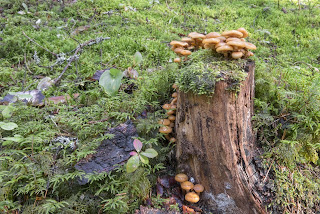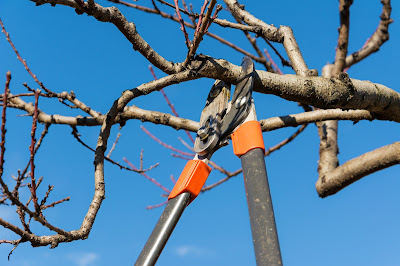Armillaria is fatal. It
attacks the roots. By the time the danger is spotted, you’re a goner. Honey
Fungus (Armillaria) attacks trees not the translation industry. It nonetheless
provides an interesting metaphor for the current state of the translation ‘family’
tree.
If you are bathed in sunshine in the topmost branches, it’s easy to
overlook or play down the creeping fungus. A well-known proverb states:
‘A fish rots from the head down’.
When an organisation fails, it is the leadership that is the root cause.
By contrast, a tree rots from the bottom up. When the root system fails, the
top of the tree comes crashing down too.
Pollution is reportedly bad in London. There is a fight for oxygen in the
upper branches. It is no doubt a relief to see that competitive Lionbridge
branch take a pruning.
While your eyes are focused on the competitive branches, the honey
fungus takes hold below. No problem, you think? You’ve taken measures to ensure
a good flow of nutrients; the direct flow of the best university students is
secure for your future growth. I’m all right, Jack*.
 |
| Future represented by conkers |
Those down at the roots are much more aware of how toxic the environment
is becoming than those in the uppermost tree branches.
Every now and again, those in the topmost branches have a ‘little chat’
with the established freelancers below. Those below naturally want a good
rapport with those above. They need the light from above. Even if deep down
they are more than a little worried about the impending storm above and the
creeping fungus below, they want to sound positive and smile sweetly.
Established freelancers are the trunk of the tree. It’s a good, solid
place to hang on. Honey fungus is merciless. It cracks and bleeds the bark from
the base. As the summer temperatures rise, upper parts of the tree die too. The
leaves look smaller, paler and less healthy than in the past. Branches die back
over several years. The root system fails, just like the feared toxic
environment for today's freelancers and future generations of linguists.
 |
| Horse Chestnut tree with leaves turning yellow |
Until recently my mother’s house looked out on a magnificent horse
chestnut tree. Now, there is a gaping hole in the view and a rotting stump. The local children used to love collecting the conkers as they waited
for the local school bus in the autumn.
 |
| Honey Fungus on a rotting tree stump |
The honey fungus has spread from garden to garden – just as toxic
pricing and anti-competitive practices have spread from continent to continent,
country to country and company to company.
When honey fungus brings a tree down, it’s the uppermost branches that
take the biggest crash of all.
Can we plant a new tree? The ground remains toxic. There are no
effective chemicals. The only effective remedy is to excavate and destroy. Burn
all the infected root and stump material.
To stop the fungus spreading you need to build a physical barrier and
bury it deep in the soil. Very few trees are resistant to honey fungus.
Maybe tech has the solution? Hasn’t it got the solution for everything
according to all the hype? I recently revisited Bristol’s Millennium Square.
The metal Energy Tree looked somewhat sad after its European Green Capital
heyday. I can’t help thinking that it’s a bit like Rules-based Machine
Translation (RMT) or Statistical Machine Translation (SMT). They are now abandoned for
the shiny new Neural Machine Translation (NMT).
 |
| A metal tree is no match for a real tree's healthy foliage however shiny |
NMT isn’t a match for strong, healthy human translation despite the
hype. And that metallic Energy Tree is no match for the gloriously healthy
foliage of a Horse Chestnut.
The moral of this tale for those in the uppermost branches of the
translation industry at GALA, EUATC, ELIA and FIT? Watch out for the
translation equivalent of honey fungus. Deal with the problems at the roots, even if you feel that they are not your problems... YET.
References:
Karen Andrews is a freelance French to English translator, transcreator, content writer and editor. She has a strong background in global marketing.
Email Karen for further information via karenanglicityen@gmail.com in French, German or English.


No comments:
Post a Comment